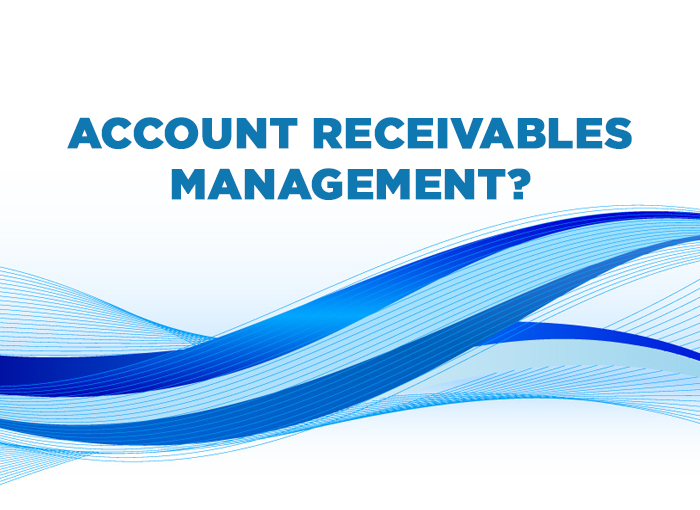Account Receivables Management - What is accounts receivable management? Explore what accounts receivable management is and how businesses can optimize ar processes to streamline cash flow and bolster customer experience. Accounts receivable management (ar management) is a critical financial process that involves handling invoices, payments, and customer relationships to ensure timely collection of outstanding payments, maintain cash flow, and. It includes functions such as. 6 best tips for improving accounts receivable management. Accounts receivable, or ar, is the balance of money due to a business for goods. Accounts receivable management refers to the process of handling and tracking the amount a customer owes to you for the goods purchased on credit. When one of your customers purchase a product or service from you and does not pay for it in full up front, the y. What is accounts receivable management?
Accounts receivable management refers to the process of handling and tracking the amount a customer owes to you for the goods purchased on credit. What is accounts receivable management? Accounts receivable, or ar, is the balance of money due to a business for goods. Explore what accounts receivable management is and how businesses can optimize ar processes to streamline cash flow and bolster customer experience. It includes functions such as. Accounts receivable management (ar management) is a critical financial process that involves handling invoices, payments, and customer relationships to ensure timely collection of outstanding payments, maintain cash flow, and. When one of your customers purchase a product or service from you and does not pay for it in full up front, the y. What is accounts receivable management? 6 best tips for improving accounts receivable management.
6 best tips for improving accounts receivable management. Explore what accounts receivable management is and how businesses can optimize ar processes to streamline cash flow and bolster customer experience. When one of your customers purchase a product or service from you and does not pay for it in full up front, the y. It includes functions such as. Accounts receivable management (ar management) is a critical financial process that involves handling invoices, payments, and customer relationships to ensure timely collection of outstanding payments, maintain cash flow, and. What is accounts receivable management? Accounts receivable management refers to the process of handling and tracking the amount a customer owes to you for the goods purchased on credit. What is accounts receivable management? Accounts receivable, or ar, is the balance of money due to a business for goods.
Accounts Receivable (AR) Definition
It includes functions such as. 6 best tips for improving accounts receivable management. Explore what accounts receivable management is and how businesses can optimize ar processes to streamline cash flow and bolster customer experience. Accounts receivable management (ar management) is a critical financial process that involves handling invoices, payments, and customer relationships to ensure timely collection of outstanding payments, maintain.
The Importance of Actively Managing Your Accounts Receivable Rocket
Accounts receivable management refers to the process of handling and tracking the amount a customer owes to you for the goods purchased on credit. It includes functions such as. 6 best tips for improving accounts receivable management. Accounts receivable management (ar management) is a critical financial process that involves handling invoices, payments, and customer relationships to ensure timely collection of.
Effective Accounts Receivable Management and Credits Controls
Accounts receivable, or ar, is the balance of money due to a business for goods. Accounts receivable management refers to the process of handling and tracking the amount a customer owes to you for the goods purchased on credit. Accounts receivable management (ar management) is a critical financial process that involves handling invoices, payments, and customer relationships to ensure timely.
What is account receivables management? Capline Dental Services
Accounts receivable management refers to the process of handling and tracking the amount a customer owes to you for the goods purchased on credit. What is accounts receivable management? Explore what accounts receivable management is and how businesses can optimize ar processes to streamline cash flow and bolster customer experience. Accounts receivable, or ar, is the balance of money due.
Accounts Receivable Template Database
Accounts receivable management (ar management) is a critical financial process that involves handling invoices, payments, and customer relationships to ensure timely collection of outstanding payments, maintain cash flow, and. Accounts receivable, or ar, is the balance of money due to a business for goods. What is accounts receivable management? Accounts receivable management refers to the process of handling and tracking.
Do You Have an Accounts Receivable Problem? Law Firm Management
Accounts receivable management (ar management) is a critical financial process that involves handling invoices, payments, and customer relationships to ensure timely collection of outstanding payments, maintain cash flow, and. What is accounts receivable management? When one of your customers purchase a product or service from you and does not pay for it in full up front, the y. Accounts receivable,.
Account Receivables Management Services AMED RCM
6 best tips for improving accounts receivable management. When one of your customers purchase a product or service from you and does not pay for it in full up front, the y. Accounts receivable management (ar management) is a critical financial process that involves handling invoices, payments, and customer relationships to ensure timely collection of outstanding payments, maintain cash flow,.
10 Simplistic Ways to Manage Accounts Receivable Process Effectively
6 best tips for improving accounts receivable management. It includes functions such as. What is accounts receivable management? When one of your customers purchase a product or service from you and does not pay for it in full up front, the y. Accounts receivable management (ar management) is a critical financial process that involves handling invoices, payments, and customer relationships.
Receivables Performance Management On Choosing An Accounts Receivables
What is accounts receivable management? Accounts receivable management (ar management) is a critical financial process that involves handling invoices, payments, and customer relationships to ensure timely collection of outstanding payments, maintain cash flow, and. Accounts receivable, or ar, is the balance of money due to a business for goods. Explore what accounts receivable management is and how businesses can optimize.
Accounts Receivable Management Services Accounts Junction
Accounts receivable management (ar management) is a critical financial process that involves handling invoices, payments, and customer relationships to ensure timely collection of outstanding payments, maintain cash flow, and. Explore what accounts receivable management is and how businesses can optimize ar processes to streamline cash flow and bolster customer experience. What is accounts receivable management? Accounts receivable management refers to.
Accounts Receivable, Or Ar, Is The Balance Of Money Due To A Business For Goods.
What is accounts receivable management? Explore what accounts receivable management is and how businesses can optimize ar processes to streamline cash flow and bolster customer experience. What is accounts receivable management? When one of your customers purchase a product or service from you and does not pay for it in full up front, the y.
Accounts Receivable Management (Ar Management) Is A Critical Financial Process That Involves Handling Invoices, Payments, And Customer Relationships To Ensure Timely Collection Of Outstanding Payments, Maintain Cash Flow, And.
It includes functions such as. 6 best tips for improving accounts receivable management. Accounts receivable management refers to the process of handling and tracking the amount a customer owes to you for the goods purchased on credit.
/open-book-with-figures-and-paper-with-words--accounts-receivable--613785056-c6a530e62e164acf899fc612ab80b528.jpg)








